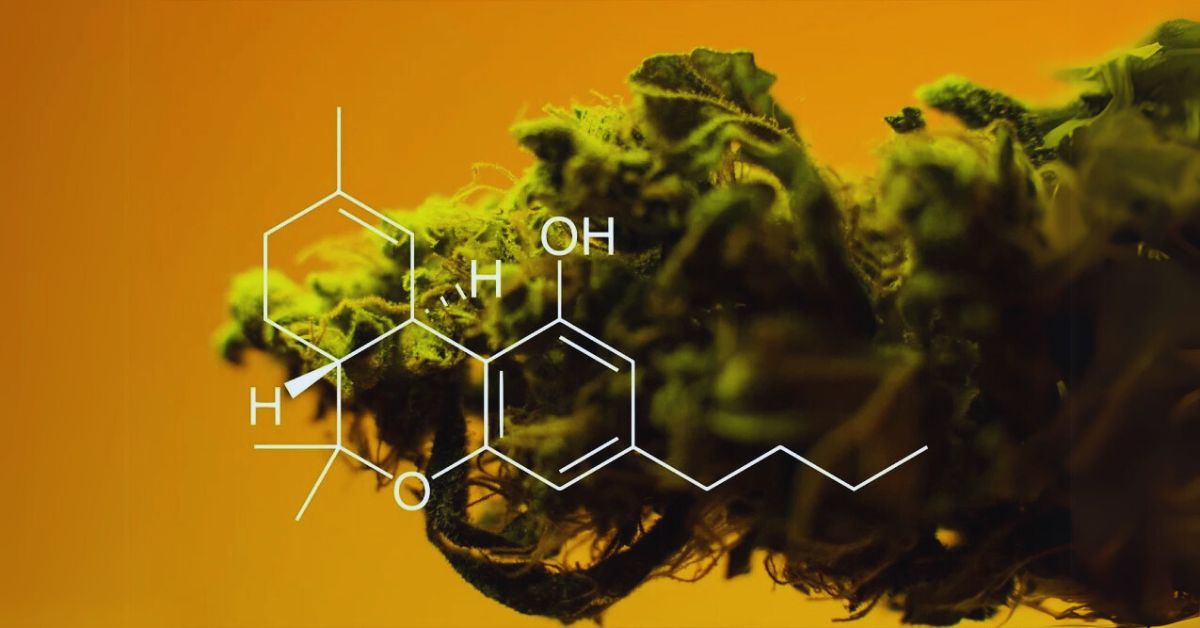Cannabinoids are a group of chemicals found in the cannabis plant that have been making waves in the world of science, medicine, and wellness. One of the most talked-about cannabinoids is THCA or tetrahydrocannabinolic acid. But what exactly is THCA? Is THCA Natural or Synthetic? And most importantly, is it safe? These questions are essential for anyone curious about cannabis and its potential benefits or risks. In this blog post, we’ll break down everything you need to know about THCA in a simple, easy-to-understand way. Whether you’re a beginner or just looking to learn more, this guide will help you understand the science behind THCA and why it matters.
What Is THCA?
THCA, or tetrahydrocannabinolic acid, is a natural compound found in raw cannabis plants. It’s the non-psychoactive precursor to THC, the well-known compound that gives marijuana its “high.” In simple terms, THCA is like the “parent” of THC. When cannabis is heated—like when you smoke or bake it—THCA turns into THC. But in its raw form, THCA doesn’t make you feel high.
THCA is found in the leaves and flowers of the cannabis plant, and it’s one of many cannabinoids that scientists are studying for its potential health benefits. Some people even juice raw cannabis leaves to get the benefits of THCA without the psychoactive effects of THC.
Is THCA Safe?
One of the most common questions is, “Is THC-A safe?” The short answer is that THCA is generally considered safe when consumed in its natural form, like in raw cannabis. However, like any substance, it’s essential to use it responsibly and understand how it works in your body.
Research on THCA is still in its early stages, but studies suggest that it may have anti-inflammatory, neuroprotective, and anti-nausea properties. For example, a 2013 study published in the British Journal of Pharmacology found that THCA showed promise in reducing inflammation and protecting brain cells. Another study in 2017 suggested that THCA might help with conditions like arthritis and lupus.
That said, THCA is not without potential risks. Since it converts to THC when heated, consuming large amounts of THCA could lead to the psychoactive effects of THC, which might not be desirable for everyone. Always consult a healthcare professional before trying THCA, especially if you’re new to cannabis or have underlying health conditions.
Is THCA Real Weed?

Yes, THCA is real weed! It’s a natural part of the cannabis plant, and it’s found in both marijuana and hemp. When people talk about “real weed,” they’re usually referring to the cannabis plant in its natural state, which includes THCA along with other cannabinoids like CBD and CBG.
THCA is not something that’s added to cannabis—it’s already there. It’s one of the most abundant cannabinoids in raw cannabis. So, if you’ve ever seen a cannabis plant, you’ve witnessed THCA in its natural form.
Is THCA Synthetic?
No, THCA is not synthetic. It’s a naturally occurring compound in the cannabis plant. However, some people confuse THCA with synthetic cannabinoids, which are synthetic chemicals designed to mimic the effects of THC. Synthetic cannabinoids, often sold as “spice” or “K2,” can be dangerous and have been linked to serious health risks.
THCA, on the other hand, is entirely natural. The cannabis plant produces it as it grows, and it doesn’t require any synthetic processing to exist. So, when you’re asking, “Is THCA natural or synthetic?” the answer is clear: THCA is 100% natural.
Is THCA Synthetic Weed?
No, THCA is not synthetic weed. Synthetic weed refers to lab-created chemicals that are sprayed onto plant material to mimic the effects of cannabis. These products are often sold as “legal highs,” but they can be highly harmful and unpredictable.
THCA, as we’ve established, is a natural part of the cannabis plant. It’s not made in a lab or altered in any way. So, if you’re wondering, “Is THCA natural or synthetic?” rest assured that THCA is as natural as the plant itself.
Is THCA Real Bud?

Yes, THCA is actual bud! When you look at a cannabis flower (or “bud”), you’re looking at a part of the plant that’s rich in THCA. THCA is one of the main cannabinoids found in cannabis buds, along with others like CBDA and CBGA.
THCA is what gives raw cannabis its potential therapeutic properties. When the bud is heated—like when you smoke or vape it—the THCA converts to THC, which is what produces the “high” feeling. But in its raw form, THCA is non-psychoactive and completely natural.
Is THCA Natural?
THCA is natural. The cannabis plant produces it as it grows, and it’s one of the many compounds that make cannabis such a unique and versatile plant. Unlike synthetic cannabinoids, which are made in a lab, THCA is a natural product.
When you ask, “Is THCA natural or synthetic?” the answer is always natural. THCA is found in the leaves, flowers, and stems of the cannabis plant, and it’s been part of human history for thousands of years. Ancient cultures used raw cannabis for its potential health benefits, and modern science is now catching up to understand how THCA works.
Is THCA Real Marijuana?

Yes, THCA is real marijuana. It’s a natural component of the cannabis plant, and it’s found in both marijuana and hemp. While marijuana is known for its high THC content, it’s important to remember that THC starts as THCA. So, in a way, THCA is the foundation of what makes marijuana what it is.
When people talk about “real marijuana,” they’re often referring to the whole plant, which includes THCA, THC, CBD, and other cannabinoids. THCA is just one piece of the puzzle but an important one.
Is THCA Natural or Synthetic?
It is a key question, and the answer is simple: THCA is natural. It’s not made in a lab or altered in any way. It’s a product of the cannabis plant, and it’s been part of human history for centuries. Whether you’re using raw cannabis for its potential health benefits or enjoying the psychoactive effects of THC, THCA is the starting point.
So, when you ask, “Is THCA natural or synthetic?” the answer is always natural. THCA is a gift from nature, and it’s one of the many reasons why cannabis is such a fascinating plant.
Potential Risks of THCA
While THCA is generally considered safe, being aware of potential risks is essential. As mentioned earlier, THCA converts to THC when heated, which means that consuming large amounts of heated THCA could lead to psychoactive effects. It might not be ideal for everyone, especially those who are sensitive to THC or who want to avoid feeling high.
Additionally, because research on THCA is still in its early stages, we don’t know all the potential side effects or long-term impacts. Some people might experience mild side effects like dry mouth or dizziness, but these are usually rare and mild.
It’s also worth noting that not all THCA products are created equal. Some products might contain additives or contaminants, so buying from reputable sources is essential. Always check for third-party lab testing to ensure the product is pure and safe.
The Natural Path of THCA

THCA is formed in living cannabis plants as a result of the decarboxylation of cannabigerolic acid (CBGA). This conversion process generates various cannabinoids, with THCA being one of the key outputs. Therefore, whenever you choose to consume raw cannabis, you are utilizing this natural form of THCA.
On the other hand, synthetic THCA can also be produced in labs, allowing scientists and researchers to study its effects and potential therapeutic applications. While discussing whether THCA is natural or synthetic, it’s important to note that synthetic compounds may not exhibit the same characteristics and benefits as their natural counterparts.
Potential Benefits of THCA
Now that we understand THCA is primarily a natural compound let’s explore its potential benefits. Research into THCA is still in its early stages, but preliminary studies suggest several promising areas.
1. Anti-Inflammatory Properties: Some research indicates that THCA may possess anti-inflammatory effects, which could benefit conditions like arthritis and other inflammatory disorders.
2. Neuroprotective Effects: Early studies suggest that THCA may have neuroprotective properties, potentially aiding in treating neurodegenerative diseases such as Alzheimer’s and Parkinson’s.
3. Nausea and Appetite Stimulation: THCA may help relieve nausea and stimulate appetite, making it a potential aid for individuals undergoing chemotherapy or those with appetite loss.
4. Antioxidant Benefits: Antioxidants play a crucial role in combating oxidative stress in the body. Some studies indicate that THCA exhibits antioxidant properties, which can contribute to overall health.
5. Potential Anticancer Effects: Some preclinical studies have suggested that THCA may inhibit the growth of cancer cells, although further research is necessary to establish any definitive links.
Conclusion
THCA is a fascinating compound that’s naturally found in the cannabis plant. It’s the precursor to THC, and it has potential health benefits that scientists are just beginning to explore. When you ask, “Is THCA natural or synthetic?” the answer is clear: THCA is 100% natural.
While THCA is generally considered safe, it’s essential to use it responsibly and consult a healthcare professional if you have any concerns. Whether you’re interested in the potential health benefits of raw cannabis or just curious about how it works, THCA is a key part of the story.
FAQs
Is THCA the same as THC?
No, THCA is the non-psychoactive precursor to THC. It only becomes THC when heated.
Can THCA get you high?
No, THCA is non-psychoactive. It only produces a high if it’s converted to THC through heating.
Is THCA legal?
The legality of THCA depends on where you live. In many places, THCA is legal as long as it’s derived from hemp and contains less than 0.3% THC.
How can I consume THCA?
You can consume THCA by juicing raw cannabis leaves or using THCA tinctures and capsules. Avoid heating it if you want to keep it in its non-psychoactive form.
Is THCA safe for everyone?
While THCA is generally safe, it’s always best to consult a healthcare professional before trying it, especially if you’re new to cannabis or have health concerns.




